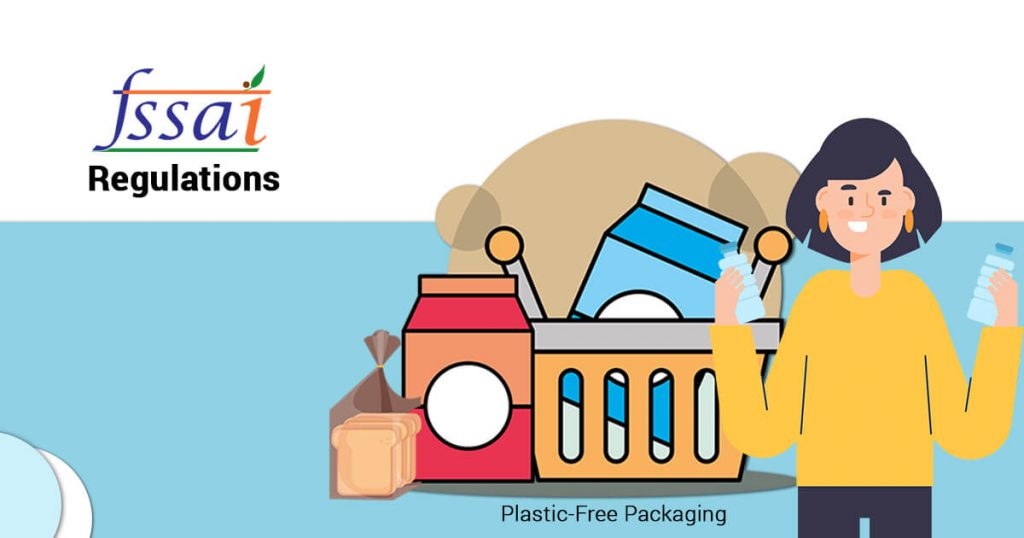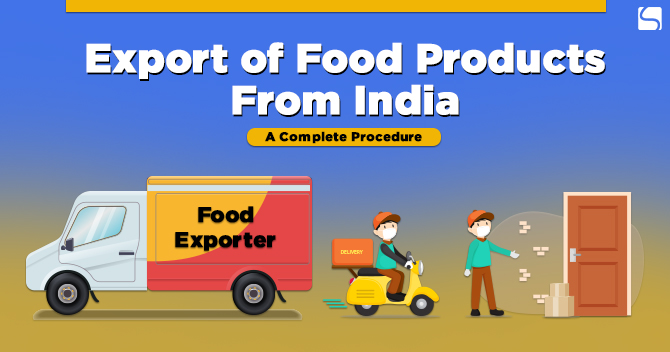FSSAI Regulations for the Food Sector to Follow Plastic-Free Packaging

Dashmeet Kaur | Updated: Nov 26, 2019 | Category: FSSAI
Packaged food plays an integral role in our contemporary lifestyle. Since we think of it as hygienic and delicious to have, we keep on consuming it without knowing its harmful repercussions. FSSAI has recently conducted a study on plastic packaging. The study reveals how plastic can cause contamination in food products that act as an eye-opener for the people.
It consequently results in severe health issues. Food Safety and Standards Authority of India (FSSAI) opines that every food vendor or food sector, in general, should adopt more eco-friendly materials for packaging. FSSAI regulation will help the companies to search for the materials that can be a perfect substitute to single-use plastic.
Table of Contents
FSSAI Prohibit the use of Plastic for Food Packaging
Mr Pawan Agarwal, the CEO of Food Safety and Standards Authority of India, acknowledges that FSSAI only distress about the safety of food packaging material. Further, he says that from now on, the food regulator must ensure the sustainability of packaging.
- The new norms concerning packaging materials include both general and specific requirements.
- Specifically, the FSSAI regulation sets an overall migration limit (OML) of 60 mg/kg or 10 mg/dm2. Along with specific migration limits for particular contaminates in plastic packaging materials.
- Furthermore, the regulations also proclaim that the food packaging materials must comply with the Indian Standards (IS). The standards have listed in I, II, and II Schedules for paper and paperboard materials, metal alloys and metal, and plastic materials, respectively.
- The new packaging regulations prohibit both the use of recycled plastics and newspaper in food packaging. Moreover, it refers to Indian Standards for printing inks on the food packages.
- Schedule IV of the FSSAI regulations defines the list of suggested packaging materials for various food product categories.
While notifying about the new regulation, Pawan Agarwal, states that “the new food packaging regulations will raise the bar of food safety in India to the next level.” Besides, he added that the stakeholder consultation among consumers and food businesses would need to implement the new packaging regulations.
A synopsis of the Study on Food Packaging
FSSAI has undertaken a comprehensive survey to monitor the presence of heavy metals and chemical contamination in food articles. Reportedly, the study got conducted in collaboration with the National Test House (NTH), Kolkata and the Indian Institute of Packaging (IIP), Mumbai.
End Result of the Report:
- As per the Press Release of FSSAI dated 3rd January 2019, out of 380 samples of the unorganized sector, about 51 samples were found as non-conforming. It implies that the overall failure rate was 13.4%. The contaminated food items in the unorganized sector get detected with heavy metals such as lead, cadmium, etc.
- The FSSAI survey also represents that the food packaging material employed by the organized sector is mostly safe.
- Thus, the unorganized sector seems to be the root cause of the problem for loose packaging material.
- The reports have brought the unorganized sector at the forefront. It showcases the high percentage of hazardous packaging material used by such industry.
- The new FSSAI regulations amend the previous Food Safety and Standards (Packaging and Labelling) Regulations, 2011. Thereby prescribe the overall and specific migration limits of contaminants for plastic packaging.
One step towards an Eco-Friendly Packaging
On 24th September 2019, an event was organized in Delhi wherein; Twenty-two reputed food companies committed themselves to manage plastic waste in their operations effectively. Many multinational companies were also a part of that event. The companies predominantly aim to reduce their plastic footprint in the upcoming years.
FSSAI Regulations for the Food and Beverages Sector
FSSAI has initiated some regulatory measures to allow the F&B industry to decrease its plastic footprint.
Key points of the measures:
- FSSAI said that the “hotels should use paper-sealed glass bottles for captive use without BIS certification in place of plastic bottles.”
- Moreover, food companies can use bamboo as an alternative to plates, bowls, plastics straws, and cutlery.
- FSSAI has withdrawn the restrictions on the use of returnable bottles for packing artificially sweetened beverages. Also, it has permitted the use of liquid nitrogen dosing in PET bottles while packaging of drinking water.
- Soon plastic-free packaging will govern India if all the food producers compel to the new regulations.
- FSSAI has gone one step forward to spread awareness about the harmful effect of plastic. The authority conducts a consumer awareness campaign, namely, ‘Eat Right India for Sustainable Living’ as a call to action.
- The campaign mainly emphasizes on the plastic waste management and reduction of plastic footprint in the Food & Beverages industry.














